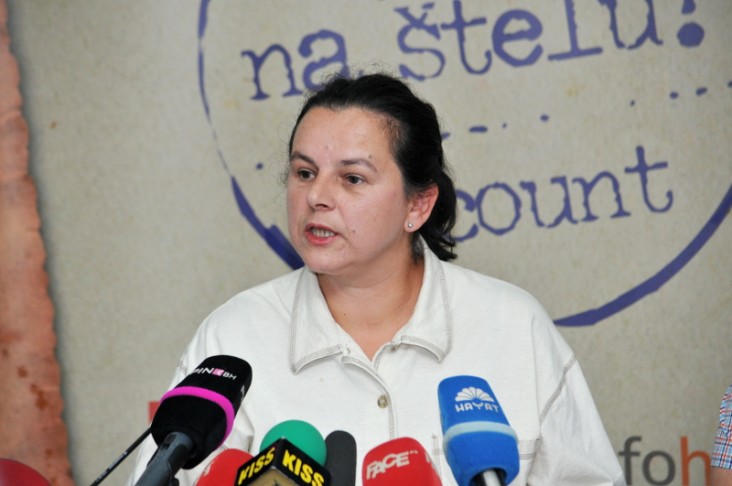
Jan. 2015—Julijana Tičinović and her husband Bernard filed their first complaint exposing the secret sale of public land in Livno, Bosnia and Herzegovina (BiH) in early 2012. At first they fought “the system” alone: three legal venues, three dismissals. Then they approached USAID's anti-corruption network for help—and this time they won.
Julijana, an architect, and Bernard started their own construction business in 2006. They soon realized that public construction projects and lands were being awarded—and that the public had never been given a chance to bid. In 2011 they discovered that an official from Livno municipality had awarded a contract for construction on 6 hectares of city land to a single company with no public notice or bidding procedure—and had done so three months before the project task description was even written.
“Everything was done in secrecy. There was no public announcement, no bidding procedure .... The head of the municipality awarded the construction project to people who do not fulfill even the basic conditions for doing the job,” said Julijana.
They filed complaints with the Livno Municipal Council and the Procurement Review Body of BiH, and a lawsuit in the Court of BiH. All of their complaints were denied as unfounded. They then joined USAID's ACCOUNT Project network of NGOs and individuals fighting corruption. ACCOUNT legal adviser Branka Inić helped them prepare a complaint with the Appellate Council of the Court of BiH, the highest court of appeals in the BiH judiciary.
“We received an answer within 10 days and, for the first time since the beginning of our battle, the ruling was that we were right,” said Julijana. The court ruled that the municipality had breached the BiH Law on Public Procurement and annulled the illegal sales. Because the case is still ongoing, the land in question has not yet gone out for public bidding.
“We are architects, not lawyers. We knew we had rights, but we did not know how to exercise them, what laws we could call upon, and what institutions to turn to,” said Julijana. “We were guided by Branka Inić the whole time, and we had strong support from the ACCOUNT Project.”
Corruption is pervasive in BiH. It affects every aspect of citizens’ daily lives, including access to health care. Compared with the public procurement practices of neighboring countries “the grimmest situation is certainly in BiH,” where almost 50 percent of public procurements are conducted through private negotiations, according to Transparency International, a global corruption watchdog organization.
“Corruption is a cancer that rules in BiH and it starts from lower levels—from local communities it spreads upwards, towards state institutions,“ says Inić. “It spreads because there is no responsibility, and without responsibility there can be no human rights.”
The Tičinović case shows that the vicious cycle of endemic corruption can be broken. One by one, civilian cases like this are building demand for transparent and accountable government in BiH. Because of increased denunciations of corruption, the ACCOUNT network widened its team of legal advisers to include the cities of Banja Luka and Bijeljina as well as Sarajevo.
The ACCOUNT (Anti-Corruption Civic Organizations’ Unified Network) Project runs from June 2012 to June 2015.
LINKS







Comment
Make a general inquiry or suggest an improvement.